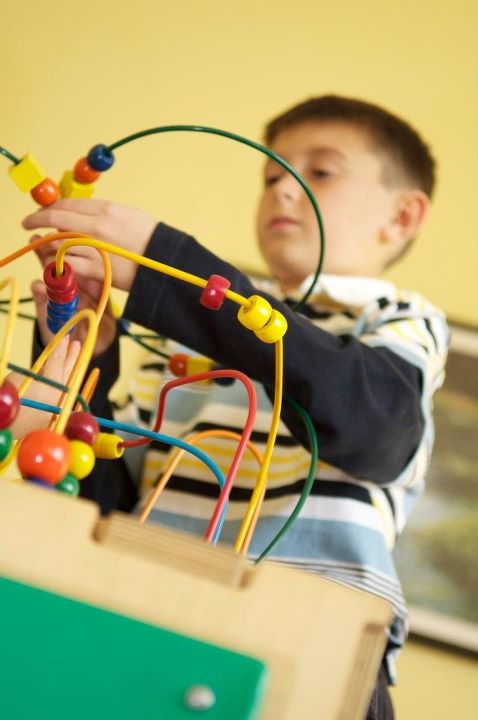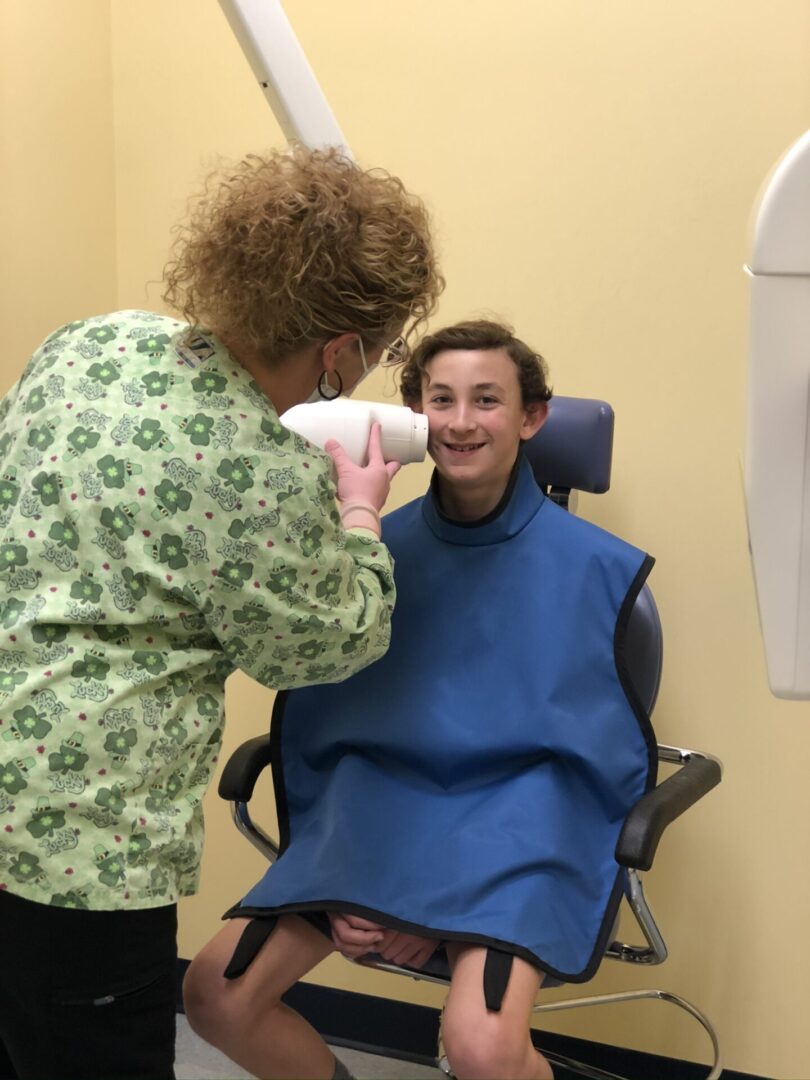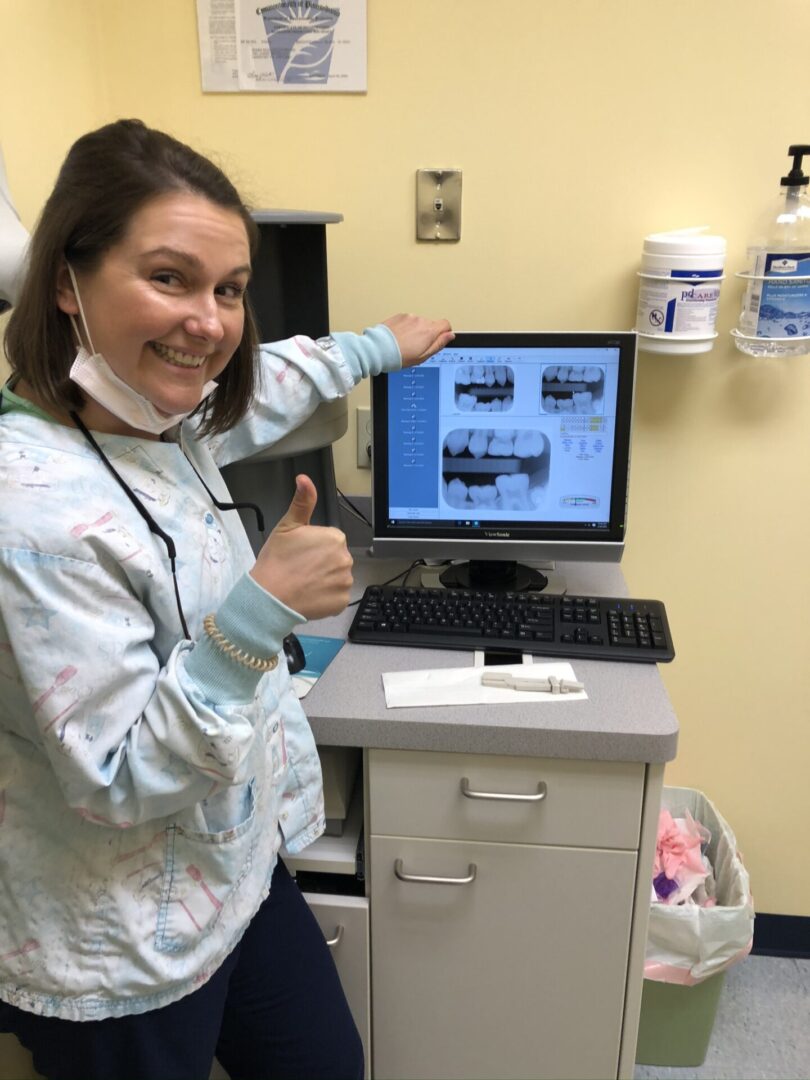Why Choose a Pediatric Dentist?
Pediatric dentistry is one of the specialties recognized by the American Dental Association, which focuses on the oral health of children, adolescents, and the special needs population. All pediatric dentists complete a 2 to 3 year residency program, after four years of dental school. Pediatric dental residency focuses on all the aspects of treatment and managing oral health for pediatric patients, and special needs patients. The goal of pediatric dentistry is to provide total oral health care for your child.
Maintained oral health can most definitely impact total health. Thus, we focus on the prevention, early detection, diagnosis and treatment of oral health care problems. Our goal is to provide these services in a comfortable environment for your child.
Baby teeth, otherwise known as primary teeth, are extremely important for your child's growth and development. Primary or baby teeth not only provide a surface for your child to chew, but they guide the eruption of the permanent teeth and impact speech development. Baby teeth begin eruption around 6 months of age; however, some baby teeth are not lost until age twelve.
The American Academy of Pediatric Dentistry recommends that your child's first dental visit occur by the eruption of the first tooth, or no later than one year of age. The goal of the first visit to the pediatric dentist is to provide a dental home: a place in which all of your child's oral health care needs can be assessed in a comprehensive, accessible, and nurturing manner. Here at Berks Kids Dentistry, Dr. Kristin and Dr. Laura combine their extensive training and experience with compassion and fun to make the first visit -- and all the visits to follow -- a positive one.
Orthodontics
Orthodontics is the treatment of the dental malocclusion, otherwise known as a bad bite. Developing malocclusions can be recognized as early as 2-3 years of age. The guidance of tooth eruption and development of the primary and permanent teeth is a very important part of oral health care for all pediatric patients. As pediatric dentists, we have the responsibility to recognizing, diagnosing, and appropriately managing or referring your child to an orthodontist.
This stage can be as early as 2-6 years of age. At this age, the concerns of the developing occlusion are usually due to thumb sucking habits or pacifier use. These habits are often easily recognized and can be addressed with simple measures. Addressing these habits early can often eliminate severe orthodontic treatment in the future.
This treatment occurs usually between the ages of 7-12, when your child has lost some, but not all, baby teeth. The goal of treatment at this stage is to address major skeletal issues. It is an excellent stage to start treatment when your child has a major dental malocclusion, because your child is in a major period of growth, and, therefore, responds well to orthodontic treatment.
This treatment occurs when your child has lost all of his/her baby teeth. In this stage, orthodontic treatment is provided to finalize your child's occlusal relationships.

Anesthesia
Local anesthesia is the localized numbing of an area of the mouth using either topical anesthesia or lidocaine. Local anesthesia is often used in the dental office to prevent discomfort and pain during the treatment of cavities.
Bonding is the use of tooth-colored filling material to restore anterior teeth.
Once your child has completed their growth and they need a crown, there are many options in terms of materials to optimize esthetics and function for your child.
An extraction is the removal of a primary or permanent tooth.
Fillings are placed in primary and permanent teeth when there is a small cavity or fracture that needs to be restored.
The pulp is the inner nerve portion of the tooth. The primary objective of therapy, whether in the primary or permanent dentition, is to maintain the health of the teeth and their supporting tissues.
Common Preventative
Dental prophylaxis or cleaning is such an important aspect of your child's oral health care needs. According to the guidelines of the American Academy of Pediatric Dentistry (AAPD), pediatric patients should be at least seen every 6 months for a routine checkup appointment.
When children start to participate in recreational sports, whether in gym class or organized sports, injuries can occur. A well-fitting mouthguard can be your best defense against dental injuries.
According to the Academy of Pediatric Dentistry, a sealant is a material placed into the pits and fissures of cavity-prone teeth, thus preventing the caries process.
An extraction is the removal of a primary or permanent tooth.
Not only are primary teeth good for chewing food, they also act as the guides for the new permanent teeth. If a baby tooth is lost early, the permanent tooth guide is no longer in place. Subsequently what can happen is the surrounding baby teeth can drift into the space of the tooth that was lost. A space maintainer is an appliance that prevents the baby teeth from shifting into the space where the baby tooth was lost. The space maintainer remains in place until the new permanent tooth erupts into your child's mouth.
Fluoride
According to the American Academy of Pediatric Dentistry (AAPD), the use of fluoride for the prevention and control of dental decay is both safe and highly effective. Fluoride has several caries protective properties including the ability to make the teeth stronger, enamel remineralization, and altering the bacterial metabolism to help prevent cavities.
Fluoride can be a benefit to your child through two mechanisms of action, systemic and topical. The systemic action of fluoride can come from either drinking community water that is fluoridated or a prescribed fluoride tablet.
Fluoride tablets can be prescribed by your pediatrician or pediatric dentist if your community does not have fluoride in the water. The systemic action of fluoride works on the permanent teeth that are developing in your child's mouth, to make them stronger and less prone to cavities.
Topical fluoride is present in fluoridated toothpastes and mouth rinses. Topical fluoride works on the teeth that are erupted in your child's mouth to make them less prone to cavities. Your pediatric dentist also provides fluoride treatments at your child's check-up visits; this method of fluoride use works on the teeth that are already present.
According to the AAPD, fluoride supplements should be considered for all children drinking fluoride deficient (less than .6 ppm) water. Many areas of Berks County, Schuylkill County and Lebanon county are not fluoridated, not to mention the fact that many of these areas receive well water. After determining the fluoride level of the water supply, evaluating your child's dietary sources of fluoride, and determining your child's caries risk, your child may be prescribed a fluoride supplement based on your child's age.
X-Rays
X-rays or dental radiographs are valuable aids in the oral health care of your child. Not only are radiographs used to diagnose dental decay, but they are used to monitor tooth development, monitor the progression of dental therapy, determine the outcome of a dental injury, and evaluate for orthodontic treatment. Because every patient is unique, the need for dental radiographs is customized depending on your child's specific dental needs.


Our office takes particular care to minimize the amount of radiation exposure to your child. Lead aprons and thyroid collars are used to block excess radiation. In addition, our office has current technology of digital radiographs, which produce less radiation exposure than traditional dental radiographs. With these current precautions, the amount of radiation exposure in a dental x-ray examination is very minimal. The risk of a dental radiograph is a far smaller risk than the risk of an untreated and undiagnosed dental problem.
Baby Bottle Syndrome
Baby bottle syndrome, now known as early childhood caries, is the presence of one or more decayed, missing (due to cavities) or filled teeth in any primary tooth 6 years of age or younger. In children younger than 3 years of age, any sign of decay on front teeth is indicative of severe early childhood caries.


Severe early childhood caries are also defined as more than 4 cavities on a year old, more than 5 cavities on a 4-year-old, and more than 6 cavities on a 5-year-old. Severe early childhood caries can occur from constant juice drinking, constant milk drinking, poor diet, and poor oral hygiene habits. The anatomy of primary teeth allows for caries progression at a much faster rate than adult teeth. Thus, early childhood caries needs to be addressed as soon as possible in the young patient.
Thumbsucking & Pacifiers
Sucking habits, such as thumbsucking and pacifier use are very natural and common at an early infant age. The habit has a calming soothing effect and can provide security for your child. Prolonged sucking can apply forces to the teeth and bones to cause malocclusion problems with tooth alignment. Both the duration of sucking and the force of sucking will determine if dental problems may result.


Most children cease the sucking habit by the age of 2 to 4 years old, although digit sucking habits can last longer than pacifier habits. If you are concerned that your child has not eliminated the thumbsucking or pacifier habit, try "gentle persuasion" as your first form of treatment. Positive reinforcement works very well for many children in eliminating their sucking habit. If gentle persuasion has not worked in deterring your child's thumbsucking or pacifier use, please speak with Dr. Gordos or Dr. Snyder on options and suggestions in terms of habit cessation.
